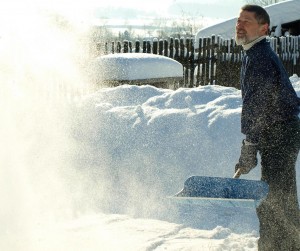 Winter can be very hard on your body and your mind, as it is a time of increased darkness and cold weather. With all the blizzards, snow, snowy weather, shoveling, snow blowing, and difficult travel, it can be a pressure cooker for many people.
Winter can be very hard on your body and your mind, as it is a time of increased darkness and cold weather. With all the blizzards, snow, snowy weather, shoveling, snow blowing, and difficult travel, it can be a pressure cooker for many people.
Tips to Survive a Winter Blizzard
If you are having some snow or ice coming your way soon, be sure to have at least 3 days of food and water available in your home. Do not skimp on buying the necessities like batteries, food, milk, and water. Do not forget your pets, and be sure to let your neighbors know you are home, with a friendly wave. It will be important for you to help them, and for them to help you if things get bad.
Prepare for Power Outages
Sometimes, the worst part of a storm, is not being stuck at home, but when you are at home, and it is dead because of power outages. Do try to have enough batteries for flashlights, and if the heat goes out, get the windows all covered up, and make sure you dress in many layers. Your home will get very cold quickly, but you can rough it safely, by sleeping together in one room, and sleeping in sleeping bags, with blankets around the room. The amazing thing is, you can keep the room at 50 degrees easily with two people, and a candle in a safe place.
Be sure to keep your cell phone fully charged before a storm, and then use that phone to call your electric company, and let them know you do not have power. Your neighbors should call as well. The more information the electric company receives the better.
Stay Positive and Happy During a Snow Storm
This can be time of great family connection and fun. Drag out the board games, and learn how everyone can connect better without all the electronic devices that we use each day. Do not over-do-it with shoveling, as it can be very dangerous if you are not used to exercising on a regular basis. More people suffer from heart attacks during a snow storm than any other weather event.
Learn how to help your neighbors, and be sure to take your time when you drive. It can be very dangerous on the roads after a storm, especially if it gets colder and freezes even further after the actual snow fall.
